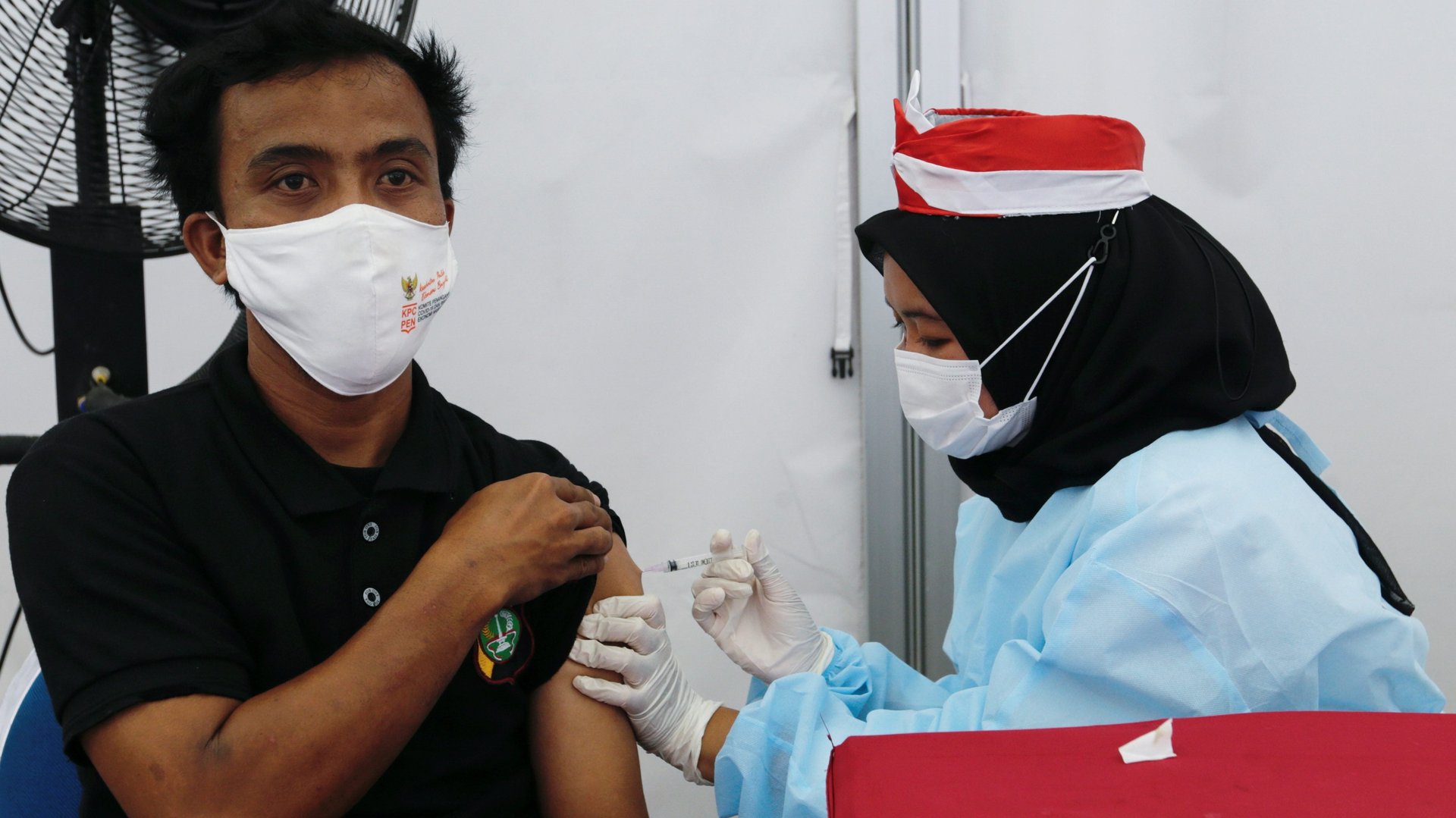The US government’s plan to offer Covid-19 booster shots could worsen global vaccine inequality
While a large part of the world stares at Covid-19 vaccine shortages, wealthier countries are recommending “booster” doses for their populations.


While a large part of the world stares at Covid-19 vaccine shortages, wealthier countries are recommending “booster” doses for their populations.
The Joe Biden administration announced yesterday (Aug. 18) that it would offer a third dose of Covid-19 vaccines from Sept. 20, provided the US Food and Drug Administration (FDA) and the Centers for Disease Control and Prevention (CDC) sign off on it. A month ago, a joint statement by the CDC and FDA had said that fully vaccinated Americans did not need a booster dose.
Critics have questioned this decision, primarily because there is scant proof that booster doses are required at this time. The CDC’s own data show that vaccine efficacy against symptomatic infections wanes over time, but the protection they offer against hospitalisations continues to remain high.
“There was no reduction in vaccine effectiveness over time, which demonstrates that protection against hospitalisation after the emergence of the Delta variant or due to waning immunity,” Céline Gounder, infectious disease specialist and a former member of Biden’s Covid-19 advisory board, explained in a Twitter thread.
Given the limited evidence around booster doses, it is perplexing why countries have begun considering third doses for Covid-19 vaccines when a majority of the world’s population is yet to receive even the first dose.
For this reason, the World Health Organization (WHO) had called a moratorium on booster doses at least till the end of September. “We’re planning to hand out extra life jackets to people who already have life jackets, while we’re leaving other people to drown without a single life jacket,” WHO’s emergency director Mike Ryan told reporters on Aug. 18.
The WHO has maintained that there is no sufficient evidence to support that effective vaccines need a top-up.
Countries where Covid-19 booster doses are being studied
In Israel, a country with a population of about 9 million, 1 million residents over the age of 60 have already received the third dose of Covid-19 vaccines. Israel has used the highly effective Pfizer mRNA vaccines for its national vaccination programme.
Similarly, France is considering third doses for those living in care homes, and those above the age of 75 with health conditions that make them more vulnerable to Covid-19.
Countries like Bahrain, UAE, and Indonesia, which either administered the Sinovac or Sinopharm vaccines, will offer a booster with an mRNA vaccine like the ones made by Pfizer or Moderna. Germany and the UK are also actively thinking about third doses.
Curiously, in India, vaccine maker Serum Institute of India (SII) has also made a case for booster doses. Cyrus Poonawalla, SII’s managing director, has said that a third dose of Covishield was “desirable” after six months of the second dose. He also said that he and nearly 7,000 of his staff have already taken booster doses. India has no official policy on additional vaccine doses yet.